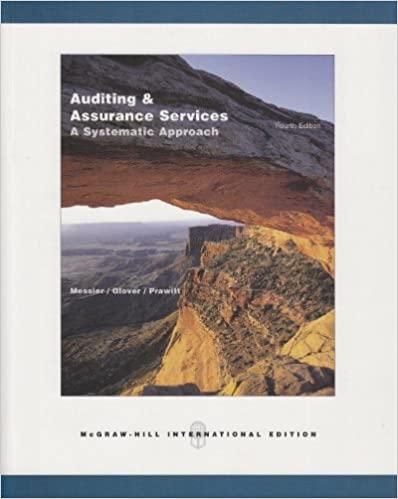Question
Williams was about to open a new SEP IRA account and was interested in exploring various investment options. Although he had some ideas about how
Williams was about to open a new SEP IRA account and was interested in exploring various investment options. Although he had some ideas about how to invest his money, Kurt thought it best to seek the advice of a professional, so he made an appointment with Keith Klingman, a financial advisor at James, Morgan, and Edwards, LLC. Prior to their first meeting, Kurt told Keith that he preferred to keep his investments simple and wished to allocate his money to only two funds. Also, he mentioned that while he was willing to take on some risk to yield higher returns, he was concerned about taking on too much risk given the recent volatility in the markets. After their conversation, Keith began to prepare for their first meeting. Because Kurt was interested in investing his SEP IRA money in only two funds, Keith decided to compile figures on the expected annual return and standard deviation (a measure of risk) for a potential SEP IRA account consisting of different combinations of two funds. If X and Y represent the annual returns for two different funds, Keith knew he could represent the expected annual return for any combination of funds as aX + (1 - a)Y, where a is the fraction of funds Kurt will allocate to X. Keith calculated the expected annual return using the formula E(aX+(1-a)Y = aE(X) +(1-a)E(Y). Keith knew that this formula would be true for all funds X and Y even if their performances were correlated. To find the variance if the combined investment he calculated Var(aX +(1-a)Y) = a^2var(X) + (1-a)^2Var(Y). Keith knew that the variance calculation assumed that the two funds were independent, but he figured that the formula was close enough even if the funds performances were correlated, and he wanted to keep the presentation to Kurt simple. Keith presented a variety of combinations of funds and allocations to Kurt. Because some equity funds delivered the best expected return, Keith advised Kurt to put all his money in two equity funds (funds that also generated higher brokerage fees) rather than allocating any money to a simple fixed income fund. Kurt was surprised to see that even under various market conditions, all the equity fund combinations seemed fairly safe in terms of volatility as evidenced by the fairly low standard deviations of the combined funds, and Keith assured him that these scenarios were realistic.
Identify the ethical dilemma in this scenario.
What are the undesirable consequences?
Propose an ethical solution that considers the welfare of all stakeholders.
Step by Step Solution
There are 3 Steps involved in it
Step: 1

Get Instant Access to Expert-Tailored Solutions
See step-by-step solutions with expert insights and AI powered tools for academic success
Step: 2

Step: 3

Ace Your Homework with AI
Get the answers you need in no time with our AI-driven, step-by-step assistance
Get Started


